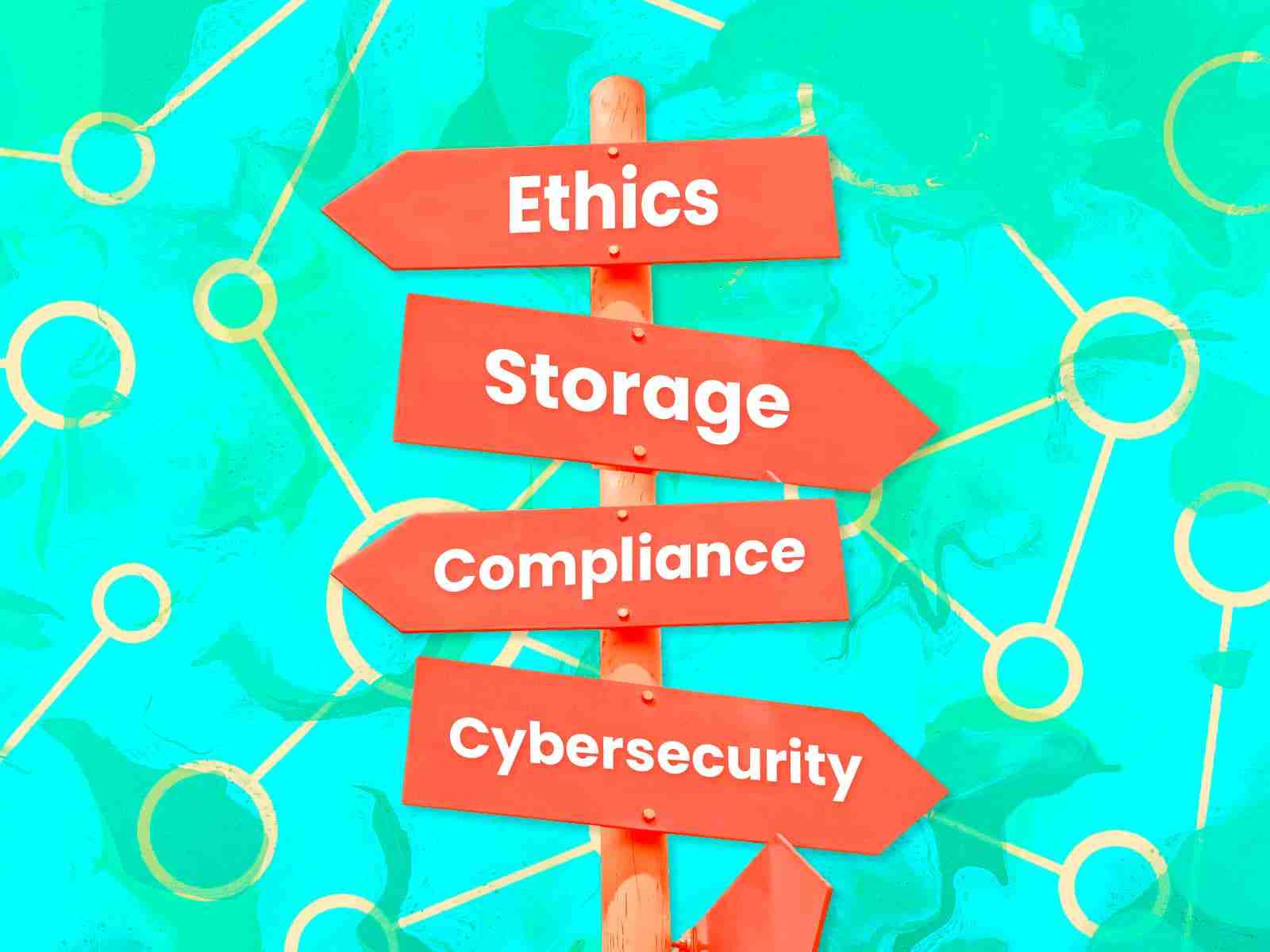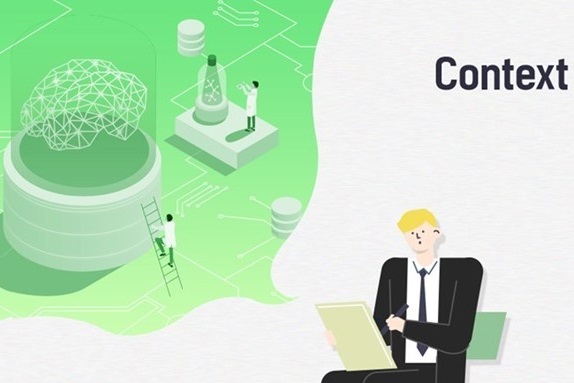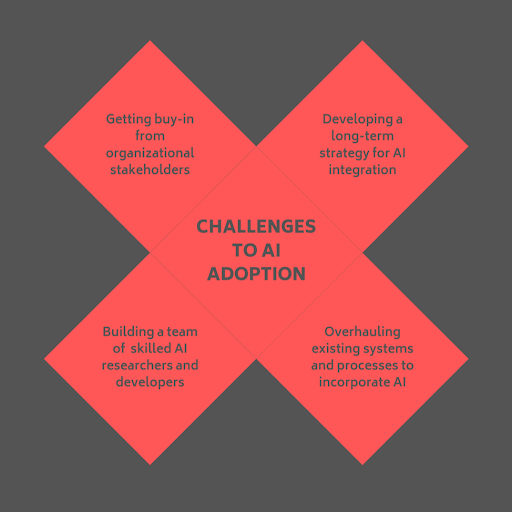Barriers to AI Implementation: Are Developing Economies Falling Behind?
I dig deep into barriers to AI implementation in developing economies. These nations have huge hopes for AI but face tough hurdles. With limited internet and power, keeping AI up and running is a struggle. But infrastructure is just the start. Without enough pros and AI know-how, even the best tech can’t take off. Then there’s money. Can these places fund AI without help?
We need smart policies that fit local needs and balance tech risks and rewards. It’s a tall order, but I’m here to unpack it all. Let’s see if we can bridge the gap and bring AI’s wonder to every corner of the globe.
Understanding the Infrastructural Challenges
The Digital Divide: Infrastructure and Connectivity Access
One big wall standing in the way of AI dreams in poorer countries is the “digital divide.” That’s a fancy term for a simple, sad truth. Not everyone has the tech they need to go online and use AI. In many low-income spots, folks can’t log on easily, if at all. This means fewer chances to use smart tech that could change lives.
Kids in some areas might never have touched a computer. Grown-ups may have never sent an email. With such a gap, diving into AI is like trying to run before you can walk. This isn’t just about missing out on the latest cat video. It’s about jobs, health, and even how folks farm their land. Smart tech could help a lot on those fronts, but first, we need to fix this access issue.
To get everyone on board the AI train, the first step is basic web access. It’s like making sure there’s a station in every town before selling tickets for the express. Bringing net lines to far-off places and making sure it’s cheap enough for all is a tough job. But it’s a move that can set off a whole chain of wins for people in these parts.
Ensuring Stable Energy for Uninterrupted AI Operations
AI is hungry for power – electric power, that is. For AI to do its magic, it needs a non-stop supply of juice. In many places where cash is tight, power can be like a yo-yo. It’s there, then it’s not. This flickering isn’t just annoying; it puts a real damper on high-tech hopes.
Think of a hospital using AI to keep hearts beating or crops hooked to AI that says when to water and feed. If the power winks out, AI can’t lend a hand. Lives and food could be on the line. It’s clear that to get AI doing good, the lights have to stay on.
Making sure power is steady is about more than just putting up poles and wires. It’s also about smart ideas, like solar panels where the sun’s always shining or windmills spinning on breezy hills. Clean energy like this can be a strong sidekick for AI tools, especially where old power ways fall short.
To sum it up, these twin troublemakers – patchy internet and shaky power – need keen minds to tackle them. If smart folks focus on these issues and crack them, we’re paving a clearer path for AI to strut its stuff. We’re not just talking about gadgets and apps here. We’re talking about giving people a fair shot at the good that AI can bring. The goal? Tech that makes life better, not just for some, but for all of us sharing this big, blue marble.
Evaluating Human and Institutional Capacity
Overcoming the Talent Gap in AI Expertise
In many low-income countries, finding AI experts is tough. Why? These places often lack programs that teach these skills. Without these, it’s hard to find people who can handle AI. Groups out there try to fix this by offering training. One good example is DataCamp, an online learning platform where users can pick up data science and AI skills. It helps because it lets anyone learn, no matter where they live. But these efforts can only go so far.
There’s no fast fix, but we can take steps to improve things. Schools and colleges need to offer courses in AI. Governments and companies can also help. They can create more learning chances for young people and workers. These could be workshops or online courses. They could look at what skills are in demand and tailor the training.
Enhancing Digital Literacy for Inclusive AI Adoption
AI needs people who understand tech. Not just experts, but regular folks too. Why? Because they can find new ways to use AI in daily life. Many people in developing nations struggle with this. They might find tech hard to use or not see its value. This holds back AI growth.
We can grow digital literacy in simple ways. Schools should start teaching kids about tech early on. We can also use radio and TV to spread tech knowledge. Local groups can hold training where people feel comfortable. These steps can help people get more from tech. And when people are more tech-savvy, they can use AI in ways that help everyone.
AI can change lives in developing nations. But first, we must build human and institutional capacity. This means more training in AI and tech for everyone. This helps people and economies grow. And it makes sure AI benefits reach folks across the globe.
Policy and Ethical Considerations for AI
Developing AI Policy Frameworks Suitable for Local Contexts
When we put AI to work in developing countries, we face big hurdles. The rules that guide how AI should be used can change a lot between places. We must make the AI rules fit well with the local way of life.
For starters, many countries lack the rules needed for AI. This can lead to issues with who owns and can use data. We have to make sure that the AI respects people’s private lives and follows local laws.
In low-income countries, people often don’t trust AI. They worry it might take their jobs or not suit their culture. To beat this, we must work with local leaders. They can help make AI technology a good fit for the community.
Training people about AI is also key. In places where education on AI is poor, fear and misunderstandings can spread. We need clear facts and training to help everyone know AI’s benefits.
Getting the right balance between new tech and age-old tradition is tricky. But it’s crucial for AI’s success in these emerging markets.
Balancing Ethical Implications with Technological Progress
Tech moves fast, but we have to think about what’s right and wrong too. In lower-income areas, ethical worries are big when we talk about AI. People fear losing their jobs to robots.
One big scary thing is if AI makes choices instead of humans. People worry because AI might not always be fair. We must teach AI to treat everyone the same, no matter where you come from.
Another worry is private stuff getting out. With AI, we must make extra sure that data stays safe. This builds trust with people and makes them more open to using AI.
AI can be costly too. This means only a few may get its perks. We need to carefully think about who wins and who loses with AI. We want tech that helps reduce poverty, not make it worse.
To finish, AI has great power to make lives better in poor countries. But smart guidelines are a must. They lead us away from harm and towards a better future for all.
Financing and Scaling AI Solutions
Strategies for Sustainable AI Investment
Let’s face it, money drives progress. For AI to grow, funds are a must. But, raising money isn’t simple. In low-income lands, it’s tougher. The high cost of AI tech scares many. Yet, it’s key for economic growth. Smart moves can help. Here’s how.
First, leaders must learn. They need a clear vision for AI’s role in development. With it, they can draw investors. Then, they target areas that promise quick, clear benefits. Think of farming or healthcare. Successes in these areas can prove AI’s worth. It makes the next step easier.
Workshops and info sessions can guide investors. They need to see how AI can win in poor markets. Knowledge cuts fear and builds trust. This draws more money into AI and keeps it flowing.
Fostering Public-Private Partnerships for Technology Growth
Partnerships can work wonders. They bring together different strengths. Governments have reach. Companies have skills. Together, they can do much more than alone. Such ties make AI projects more likely to work out. They can spread costs, risks, and know-how.
For example, a government may have data. A tech firm knows how to use it. Together, they create tools that help many. They share the success and the learning. Partnerships like this can speed up AI use. They turn tech into real help for folks.
In closing, clear aims and strong ties are key for scaling AI. They overcome the money barrier. They can launch AI on new paths in new places. This helps nations leap ahead, even if they’re starting from behind.
In this post, we took a deep dive into the issues that hold back AI’s full power. We talked about the internet gap and how some places struggle with keeping the lights on for AI to work. To make AI better, we need more smart people in the field and to teach everyone about digital stuff.
We also looked at how rules and doing the right thing really matter when we use AI. To finish it all up, we discussed the money side, stressing the need for smart investing and teamwork between businesses and the government.
This stuff is crucial. If we fix these issues, AI can help us more than we ever imagined. Let’s get to work on making AI good for everyone.
Q&A :
What are common challenges faced by developing economies in implementing AI technology?
When it comes to the implementation of Artificial Intelligence (AI) in developing economies, several challenges are commonly faced. These include limited access to funding, which restricts the ability to invest in AI infrastructure and research; a scarcity of skilled professionals trained in AI and machine learning; inadequate technological infrastructure; legal and regulatory barriers; and sometimes a lack of quality data to train AI systems effectively. Addressing these challenges requires a concerted effort from governments, educational institutions, and private sector participants to harness the potential of AI in driving economic growth.
How does lack of data affect AI implementation in developing economies?
Lack of quality data significantly affects AI implementation in developing economies. AI systems require large volumes of data to learn and make accurate predictions. In developing countries, the data collection infrastructure might not be robust enough, leading to gaps in data availability, reliability, and diversity. This can result in AI models that are less efficient, biased, or not fully optimized for the local context. Overcoming this barrier involves improving data collection processes, establishing data privacy and protection laws, and collaborating internationally to gain access to broader datasets.
In what ways can developing economies overcome the skill gap in AI?
Developing economies can overcome the skill gap in AI by investing in education and training programs focused on digital skills, AI, and data science. Partnerships with universities, online learning platforms, and international tech companies can help in developing curricula and providing access to quality education and professional development opportunities. Additionally, creating incentives for AI professionals to stay or return to their home countries, alongside fostering a culture of innovation and entrepreneurship, can also drive progress in developing the necessary human capital for AI implementation.
How do legal and regulatory issues hamper AI advancement in developing countries?
Legal and regulatory issues may hamper AI advancement in developing countries due to the lack of a clear framework governing AI use, data protection, and privacy. Without appropriate laws and regulations, there might be uncertainty among investors and innovators, potentially leading to a reduced rate of adoption and development of AI technologies. Developing countries need to build a legal infrastructure that supports AI innovation while ensuring ethical considerations, transparency, and the protection of citizens’ rights.
What role does government play in facilitating AI implementation in developing economies?
The government plays a crucial role in facilitating AI implementation in developing economies by creating a conducive environment for innovation. This includes formulating policies and strategies that encourage AI research and development, providing funding and incentives, investing in digital infrastructure, and ensuring accessible, high-quality education in STEM fields. Governments can also forge international partnerships and cooperate on a global scale to share knowledge, technology, and best practices in AI. Through these efforts, governments can help unlock the potential of AI as a driver for economic transformation and social improvement.




